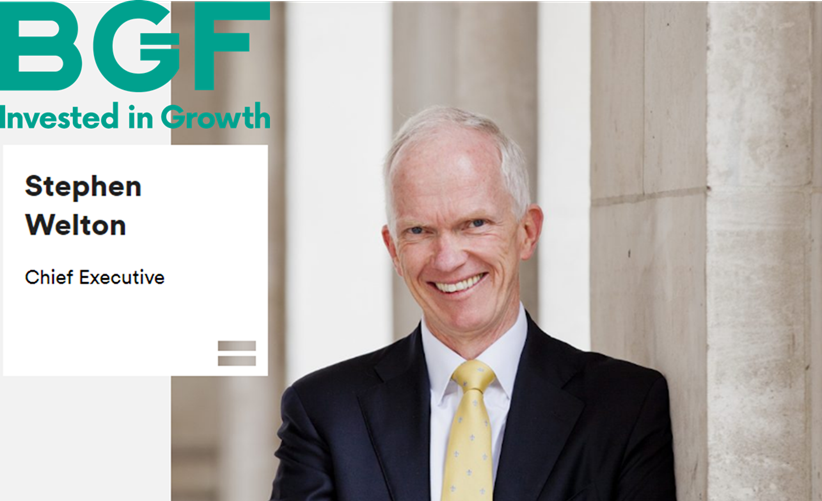✕



Taking the long view with BGF

In the UK, there are in the region of 6 million SMEs. The majority of these employ fewer than ten people and exist primarily to provide a living for those working within them. However, a proportion – around 30,000 – are high-growth or scale-up businesses: ambitious, entrepreneurial firms that employ more people, are growing more quickly, are innovating, investing, making acquisitions and expanding internationally. These businesses have a dramatic impact on the country, providing employment and generating wealth.
But, particularly since 2007–8, it has been challenging for businesses like these to secure capital funding to finance their growth, says Stephen Welton, Chief Executive of BGF, which was established in 2011 and is now the largest provider of growth and expansion capital in the world by number of transactions.
“Inevitably, in buoyant economic times when there is a lot of liquidity and there is a lot of bank debt available, it somewhat masks what may be structural weaknesses within the economy,” he says. “As equity investors, we take minority stakes in growing companies, and we help them to accelerate not only through capital, but also through the support of the network we place around them.”
Overcoming barriers
For businesses like these, bank lending may not be available and private equity or venture capital funding may not be appropriate, Stephen explains. Many small business owners are reluctant to part with a controlling share of their company, and the short-term nature of such capital may also pose a barrier.
“The private equity and venture capital industry operates within a structure,” he says. “It is funded by funds. People go out and raise capital, they invest to get their money back with a good return, and then go and look for their next investment. It’s like a sort of hamster wheel: they’ve got to go round and round, recycling money. The net effect of that is it encourages you or forces you to think about exit, as being short-term. That’s not a criticism, it’s just a natural consequence of the structure in which funds are raised and invested.
“We don’t have that pressure. We have pressure to make good investments and support companies, but we don’t have the pressure to make an investment and then get it back again as quickly as possible, to go and raise some more capital. Because whenever we have an exit of one of our investments, the proceeds of that go back onto our balance sheet and we reinvest them again.”
Patient capital, as provided by BGF, not only allows for the inevitable set-backs that occur as a business grows, it also fosters a longer-term relationship between founder and investor, Stephen believes.
“The structure of being a balance sheet investor means that we can genuinely take a long-term view,” he says. “That is crucially important for growing companies because the reality is there are normally many, many twists and turns in the development of the business, not all of them good. If you haven’t got the flexibility and timeframe to allow that to play out, you could get into significant short-term issues. Through our team of 170 people, we are able to build relationships over a period of years with entrepreneurs at a local level, making average first-time investments of £5–6 million.”
A path to exit
Luca Peyrano, CEO of ELITE, agrees that funding of this kind is an essential part of the ecosystem that fosters the growth of SMEs.
“We fully embrace the vision and mission of supporting high-growth small businesses who want to go for the next stage of growth,” he says. “In particular, what we like about BGF is the long-term approach and the philosophy of the permanent capital mechanism they apply to their investment policy, which makes their model absolutely compatible with our own. They also see flotation as one of the ideal exits for their investments at a later stage.”
Despite the long-term nature of BGF’s funding, supporting companies once they are ready to move on to the next stage of their journey is a vital part of its strategy.
“A lot of the companies we back have never taken on board any form of capital,” Stephen says. “And that is a big change for them. So what we are doing is priming the pump, so to speak, to ready them for further investment, either from private equity, in an AIM listing, or ultimately an IPO. We have yet to see one of our businesses go public, but I’m very much looking forward to when that happens, which I believe is only a matter of time. And unlike a classic private equity investor, who will see that as an exit, we will see that as an opportunity to increase our investment in a public market environment.”